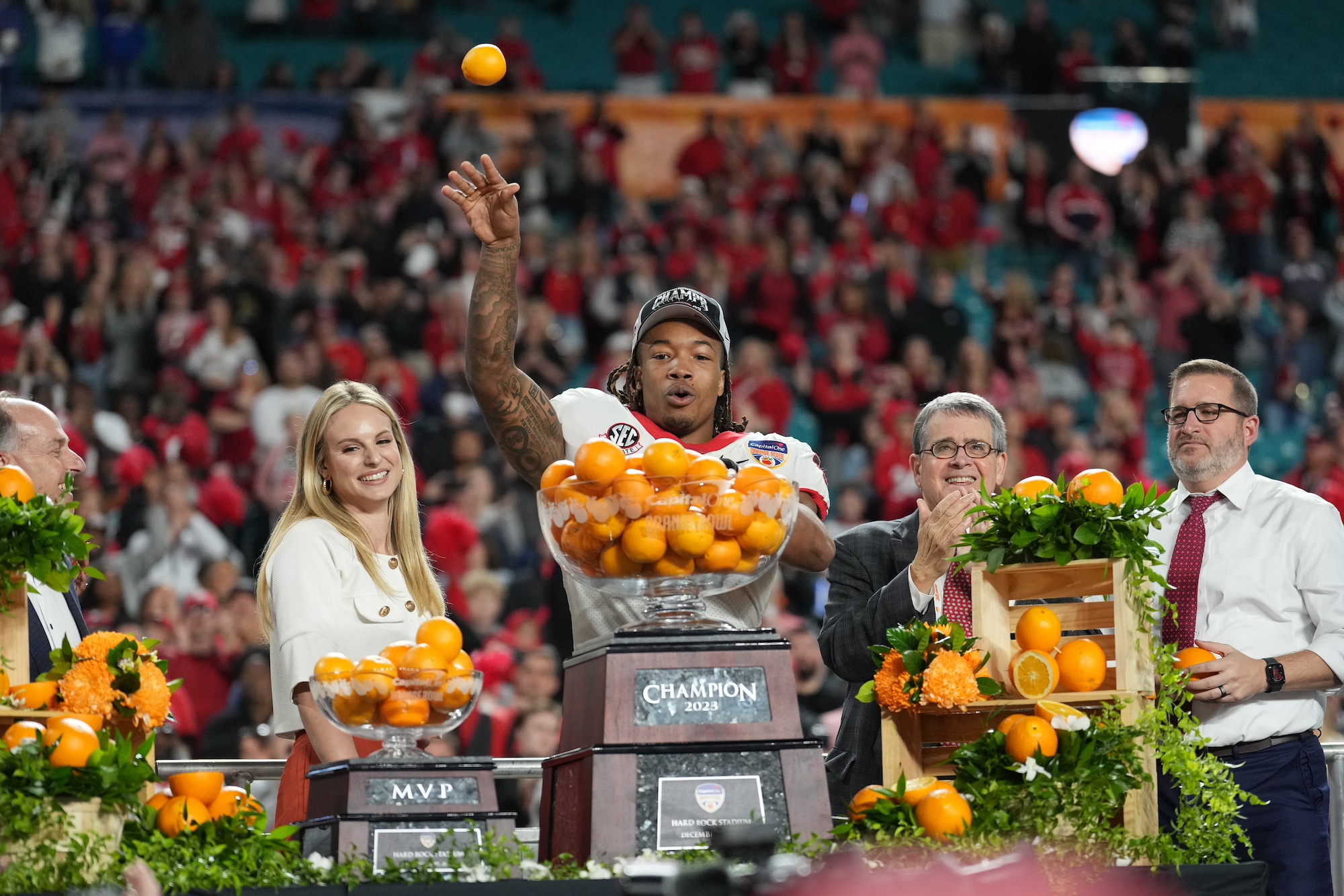Most bowl games long ago pivoted toward prop comedy, so it seems inevitable that those who still use the games as proof of greater football or business truths are being left behind as anachronisms. There is no other sensible way to view Saturday’s Orange Bowl, in which two teams feeling hard done by the College Football Playoff Committee met on the field of competing interests—one, Georgia, powered by wreaking revenge upon the innocent, and the other, Florida State, powered by its players declaring, "Sorry, but if you suits want the SEC so badly, then you play the stupid game."
The college football punditocracy long and cheerfully lived upon the notion that bowl games meant something important: the schools, for a payday that rarely came; the students and alums, for a road trip to a city that none of them would dream of ever visiting on their own; and the players for one final crack at a career-damaging injury. It all crystallized in Miami Gardens Saturday when Florida State put on a no-show for the ages, losing the most lopsided bowl game ever, a 63-3 loss that wasn't nearly as close as the final score indicated.
In fairness to and explanation of the Seminoles, they were playing a consolation game they thought they didn't deserve, and most of their best players decided not to bother, because of transfers, opt-outs, and injuries, Florida State was without its most dynamic offensive players, responsible for 97 percent of its passing yards, 88 percent of its rushing yards and 84 percent of receptions this season. Georgia head coach Kirby Smart said he felt badly for Florida State for having to work with back-ups, but not so badly that he didn't put the boot in to make his own point: that his team deserved better than the stinking Orange Bowl against a team whose administrators had greater aspirations for the company than many of its own players.
Smart isn't reluctant to use a bowl game to prove a point; last year, Georgia beat an opportunistic but inadequate TCU side, 65-7, in the national championship game. In that way he is the modern coach using the tools allowed him—using the scoreboard to deal with grievances held against others, in this case the committee. The committee is populated by people too arrogant by half who spend too much time overthinking the future instead of acknowledging the virtues of actual deeds from the provable past, but Georgia had no legitimate complaint given its SEC championship loss to Alabama.
Florida State, on the other hand, felt genuinely aggrieved at not being in the playoff, so much that its self-important administration jacked up its long-held complaints against the Atlantic Coast Conference and sued to be freed for a life of greater rewards in—yep, the Southeastern Conference, whose second-best team just beat FSU’s second-best team by eight and a half touchdowns on national television.
Smart's message to FSU's suited lizardry, sympathetic words aside, was clear: this is what you're trying to pay hundreds of millions for, you feckless clowns. When he said, “People need to see what happened tonight and they need to fix this," he was laughing in a graveyard because this is the future that college football has opted to chase. The theory—that the grass and money are always greener—is leveled by the adjoining principle, that only a few schools get to enjoy it. Florida State is among those operations caught in a hellish self-constructed middle ground: big enough to have grandiose aspirations, but not mighty enough to chart their own course toward greater rewards without the kindnesses of strangers.
Like Georgia, which offered none.
The Florida State players who opted out of the Orange Bowl to avoid injuries that might affect their draft position missed nothing. They did the smart thing by applying the lesson they learned from the schools for which they played: that they are not all in this together. The overarching collegiate principles of more money for fewer people, and eating the weak as an appetizer between meals, is achieving full flower, and the damage done will only be what they all deserve. In that way and that way alone, the Orange Bowl was a hell of a game.






